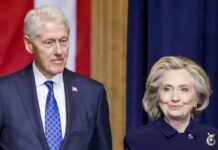
By Were Kelly
President Donald Trump has signed into law a bill that compels the US Department of Justice to publicly release a trove of documents related to the late sex offender Jeffrey Epstein.
The move, fulfilling a campaign promise, is set to unleash a flood of long-sealed records that are expected to detail the extent of Epstein’s network and his communications with numerous high-profile figures from politics, business, and academia.
The legislation, which passed with bipartisan support, mandates the disclosure of documents from the initial investigation into Epstein and subsequent inquiries, including records of communications between Epstein and various individuals after his first conviction.
Victims of Epstein’s abuse and their advocates have long fought for this transparency, hoping it will provide a more complete picture of the operation that enabled his crimes and bring a measure of closure.
A lawyer for several survivors stated, “For years, the full truth has been hidden behind redactions and sealed orders. Our clients hope this release will finally expose the powerful enablers and co-conspirators who have so far escaped accountability.”
However, the impending disclosure is also fraught with anxiety, as victims face renewed harassment and legal battles are anticipated over the scope of the redactions to protect privacy or ongoing investigations.
A political commentator noted, “The signing of this bill is a political earthquake in waiting. The contents of these files have the potential to implicate figures across the political and social spectrum, leading to unpredictable consequences.”
The emails and memos are expected to reveal previously unknown details about the methods Epstein used to cultivate influence.
The DOJ now has a strict timeline to prepare the documents for public release. The world is bracing for the revelations that will emerge from the files, which promise to reignite the global scandal and test the US justice system’s commitment to transparency in one of its most scrutinised cases.
Source: NPR


















